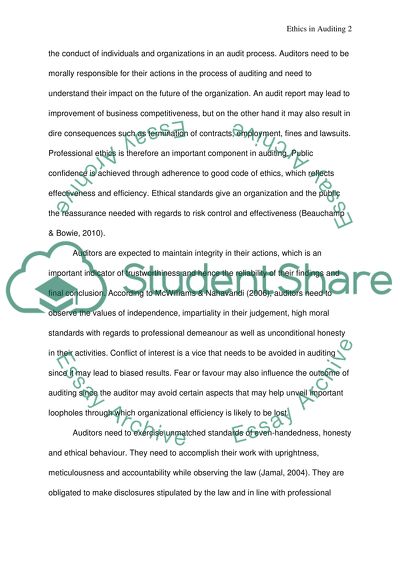Cite this document
(“Ethics in Auditing Research Paper Example | Topics and Well Written Essays - 2250 words”, n.d.)
Retrieved from https://studentshare.org/finance-accounting/1493691-ethics-in-auditing
Retrieved from https://studentshare.org/finance-accounting/1493691-ethics-in-auditing
(Ethics in Auditing Research Paper Example | Topics and Well Written Essays - 2250 Words)
https://studentshare.org/finance-accounting/1493691-ethics-in-auditing.
https://studentshare.org/finance-accounting/1493691-ethics-in-auditing.
“Ethics in Auditing Research Paper Example | Topics and Well Written Essays - 2250 Words”, n.d. https://studentshare.org/finance-accounting/1493691-ethics-in-auditing.


